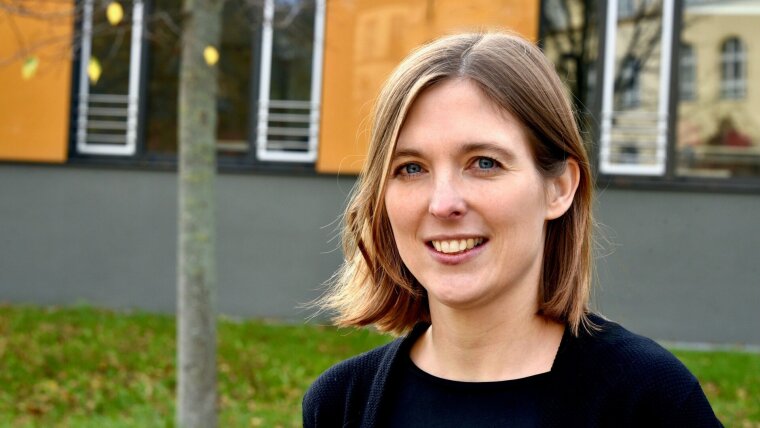
- Research
Published: | By: Sebastian Hollstein
The Basic Law of the Federal Republic of Germany is considered one of the most modern constitutions in the world. It secures far-reaching fundamental rights for the population and consolidates democratic coexistence in this country. However, when young people deal with the constitution for the first time as part of civic education in schools, it is often not easy for them to find access to its socio-political and legal perspectives and to realize the direct influence that the Basic Law has on their everyday lives.
With the project »GO: GrundgesetzOffensive zur Förderung demokratischer Kompetenzen bei Jugendlichen« (GO: Basic Law Campaign to Promote Democratic Skills in Young People), actors from Friedrich Schiller University Jena and the GrundGesetzVerstehen e. V. association want to change this. Over the course of a year, they will work together to determine what the optimal educational formats in schools look like and how they can be integrated into school practice as effectively as possible. The Volkswagen Foundation is funding the project, which starts on 1 September, with 167,000 euros for one year.
»We want to make knowledge about democracy accessible and convey it in a realistic way,« says psychologist PD Dr Katharina Eckstein, who is leading the project at the University of Jena. »That’s why we are working closely with a partner from the field who has already been active throughout Germany for several years.« The association’s lawyers teach the contents of the Basic Law in schools and explain in various educational programmes what freedom of expression and freedom of assembly are all about, for example, and how these principles influence the lives of pupils everywhere.
Optimizing offers together with the participants
The researchers at the University of Jena will now spend a year scientifically monitoring the educational programmes offered at ten schools. They are surveying participants about their experiences with the school visits and how they perceive the content. »We want to engage in dialogue with the young people and work with them to find out what they take away from the school lessons and what they need in order for the formats to have a lasting impact,« says Katharina Eckstein. There are also plans to develop and implement ideas in a participatory research format with the Marburg Children’s and Youth Parliament.
To ensure that other stakeholders can also benefit from the current research project, the team intends to publish its findings on a freely accessible e-learning platform at a later date. There are not many low-threshold initiatives that are also scientifically well supported, says the Jena psychologist. Often, ther is either a strong practical approach, while scientific reflection tends to be neglected, or the programmes are academically developed and not always easy to implement in practice. »We want to contribute to better linking theory and practice.«
Law in schools
Another aim of the project is to further expand the association’s network of partner schools and raie awareness of its offers. In principle, many schools have already shown great interest, as this provides a good opportunity to incorporate legal topics—presented by experts—into lessons. »We also want to work on bringing our services to schools in rural areas and to as many different types of schools as possible,« adds Victoria Lacis, a member of the GrundGesetzVerstehen association.
»From our research in the field of educational psychology, we also know that teaching young people about social issues has a great deal to do with experiential learning and relevance to everyday life,« says Katharina Eckstein. »School as a microcosm can therefore play a major role in democracy education, as it is are often perceived as a space that can be shaped democratically, but is still far too rarely lived as such. That is why we also want to examine how schools can take up the impetus provided by the democracy promotion initiatives and reinforce it for themselves.«